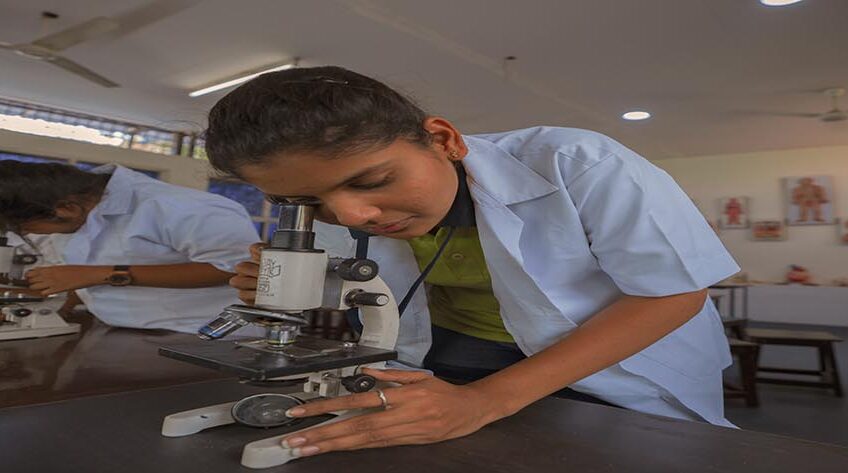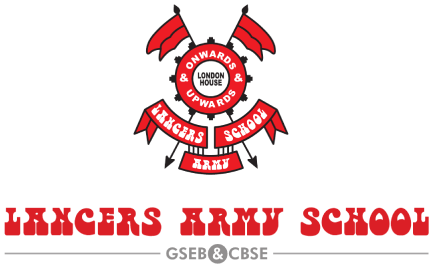
Importance of Learning
As we learn, we gain new skills, knowledge, understanding, and values. People can learn on their own, but it’s generally easier with education. Education is the process of guiding someone or a group of people to learn. With educational support, learning can happen more conveniently. The process of education in pre primary level involves collecting and sharing all the skills and knowledge at an early stage that we acquire as individuals.
Learning makes us human beings different from animals who are trained and not taught. Parents enrol their children in school to learn. They want their child to have a good education. Sometimes words education and learning are used interchangeably. Learning develops the cognitive ability of the learner. With learning, the learner becomes knowledgeable, develops skills, and also develops their attitude. Learning helps in all Round Development of personality. Learning affects all aspects of behavior, which includes skills, knowledge, attitudes, personality, motivation, etc.
Theoretical Learning vs Practical Learning
A happy life and a bright future are made possible by education. Education exists just to replace an empty mind with an open, inquiring one. Education is essential because it gives everyone the chance to develop new skills and expand their knowledge. It is also the only way to raise morally upright people who can learn from others’ teachings and pass them on to others. But how should we educate our children? On one side, we have the theoretical, and on the other, the practical. Which of these two is more crucial and worthwhile to a student.
Theoretical education entails reading books for everything. The child benefits from understanding why one strategy is more effective than the other. Through the experience of others, books instruct us. It aids in realising the motivation behind the idea and provides a deeper grasp of it. The goal of practical learning is to learn via experience. Everyone’s recollection of what they’ve learned practically holds on to it better and for a longer period of time. Through actual practice, an idea is frequently better understood.
Both theoretical knowledge and practical knowledge are equally vital; they are like two sides of the same coin. Understanding both extremes of the spectrum is essential. Investing the time to comprehend how these strategies function and how they fit into a bigger framework takes hours to learn the art of practical techniques.
Benefits of Practical Learning
As the name implies, practical learning involves learning via actual, hands-on experience. You learn more by doing, and doing helps you understand things better. It is a sort of education that gets you ready for life in the real world by teaching you precisely what to do in a certain circumstance.
Everything that is learned in a hands-on learning setting integrates information retention over the long term. Everything is done in an entirely enjoyable, creative, unusual, and fascinating way. Here, you test your theoretical understanding and apply it to your learning through experiments.
Applying all you learned in a theoretical setting is what you learn in practical education. Instead of discussing issues’ “why,” it focuses on the “how.” It goes further than what is written in your textbook and can give you real-world, practical experience that can help you understand a theory.
The best thing about practical education is that you may study without using academic sources or textbooks. For an exam, you don’t need to cram any knowledge or memorize anything. Every academic activity takes the form of an independent practical experience. As you continue to build on your practical experiences, your knowledge grows.
Your knowledge of a particular subject or skill is tested in a more skill-based context. Your effectiveness in a practical learning environment will be determined by how you perform. It gives us a head start on performance training for the job path we pick. Since practical knowledge is acquired via personal experiences and education, no teacher can impart it to you.
Advantages of Theoretical Learning
Theoretical learning is a type of education where students learn about a subject through theories, facts, information, and concepts. The main foundation for advancing to practical learning can occasionally be theoretical knowledge. By reading textbooks, PDFs, and articles, kids and students put their theoretical understanding into practice.
Memorizing information is always a part of theoretical learning. In India, most of the CBSE students find it easiest to absorb theory by memorizing it. By using this mode of education, one can learn what a particular piece of work is all about through logic and reasoning.
As you learn theoretically, you gain knowledge about new things and improve upon those that already exist. You have so much content inside your head, that you can learn to work with any kind of situation by reasoning out and using logical assessments.
You might fail at the beginning, but then you know where you went wrong and how to get back up. In order to learn, you need to question everything you read or are taught instead of just jumping right in. As a result of dealing with a lot of content, you retain more information in theoretical learning.
Frequently Asked Questions
Q. How can GSEB students benefit from theoretical learning?
A. Students of GSEB schools in Surat who are able to understand concepts and ideas on a theoretical level are able to use their understanding to make connections between different concepts. This is a useful skill for many professions in the future. Theoretical learning provides them with a broader perspective of what is happening in society and how it affects different aspects of life.
Q. How can we implement more practical learning in schools in India?
A. One way to incorporate more practical learning into schools in Surat is by using experiential learning methods. Experiential learning is a type of teaching that incorporates hands-on activities, simulations, and field trips into the classroom. These activities help students learn through experience and connect what they learn in school with what they see in their everyday lives.
Q. What are some ways to use technology to make learning more engaging in schools?
A. There are many ways to use technology to make learning more engaging in schools. One way is by using a digital whiteboard, which is a tool that teachers can use to create lessons and teach students. It comes with an interactive interface and integrates the power of computers into teaching.



Leave a Reply